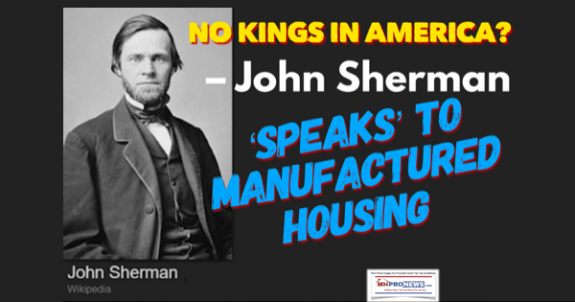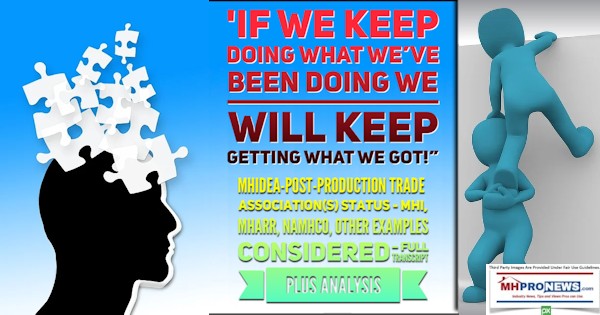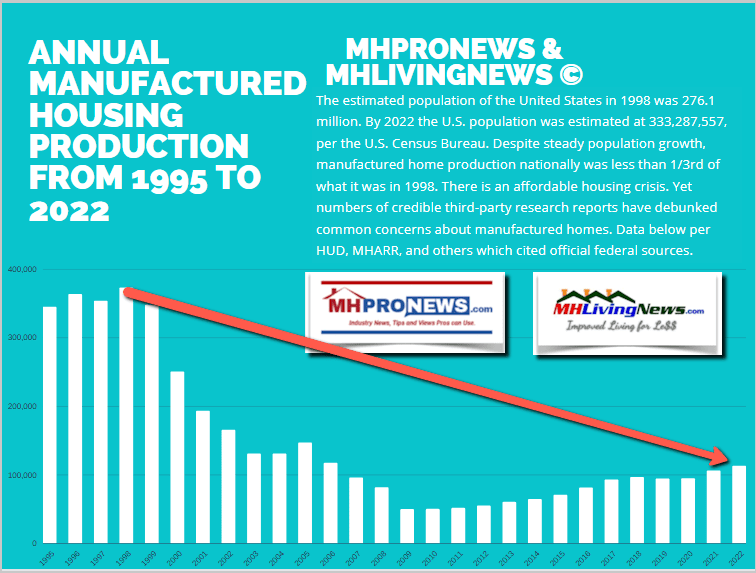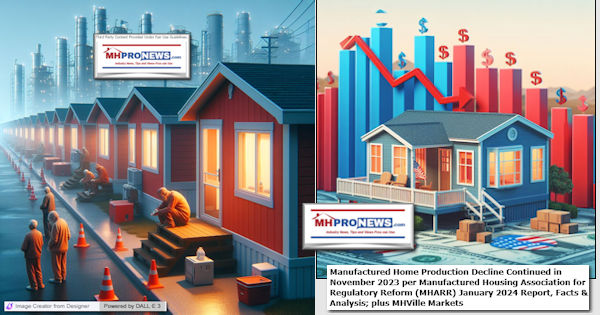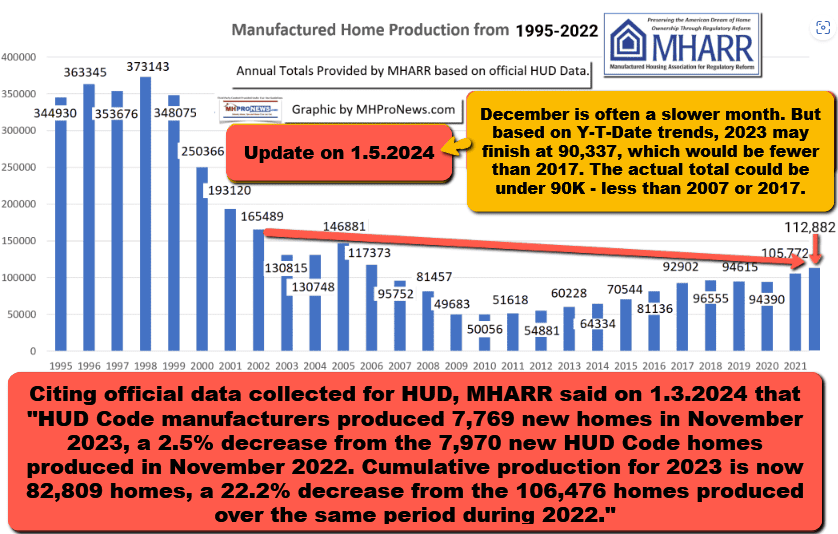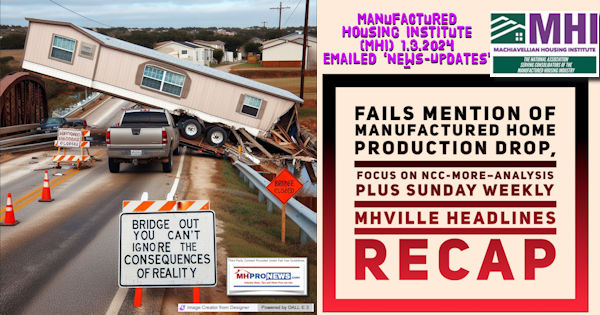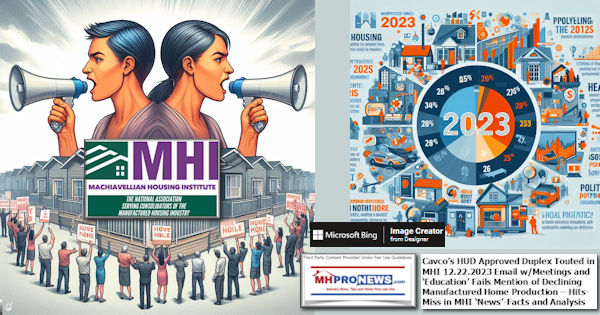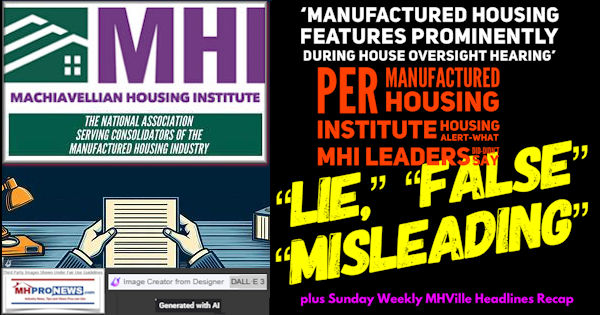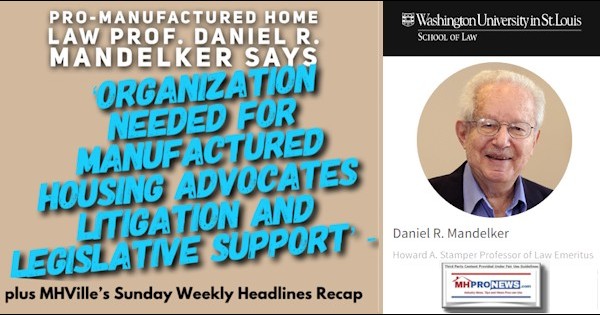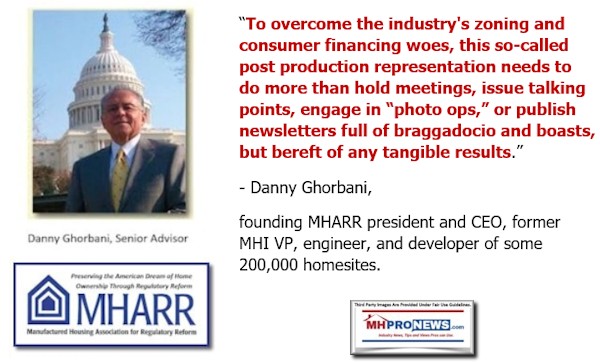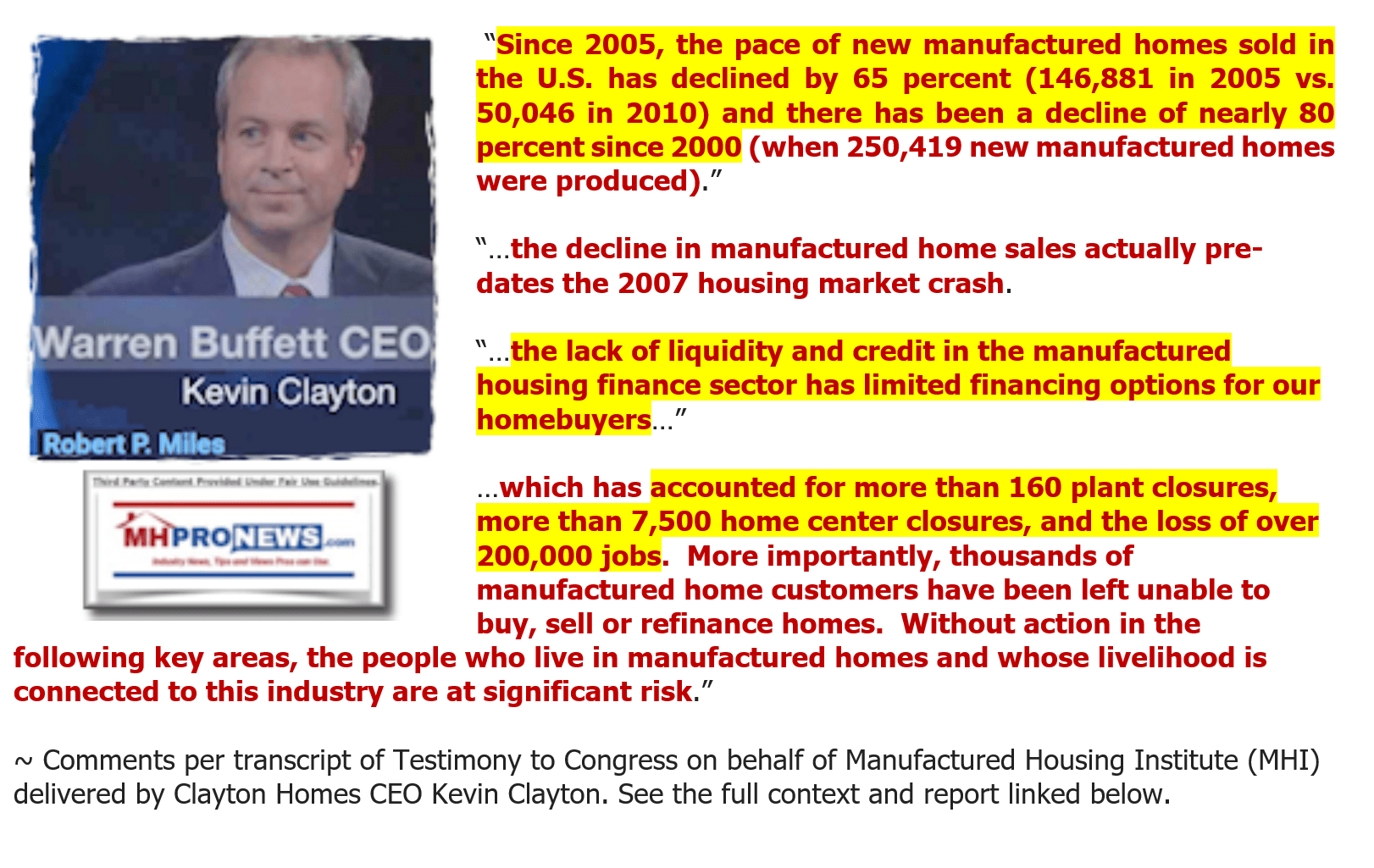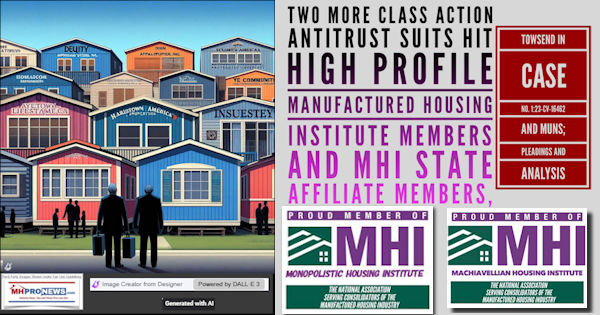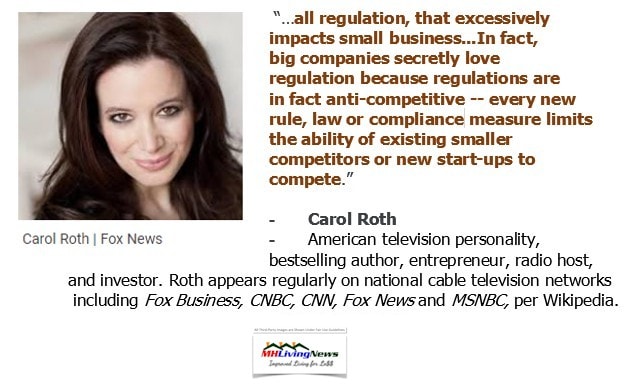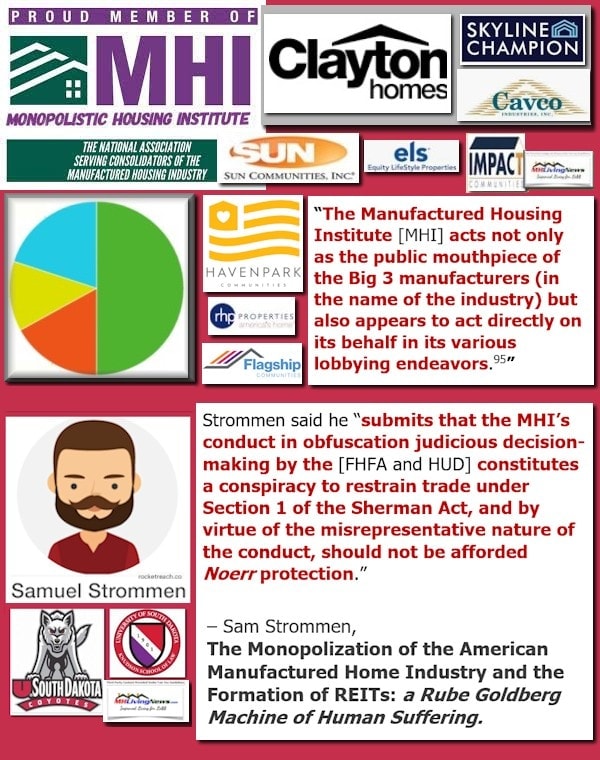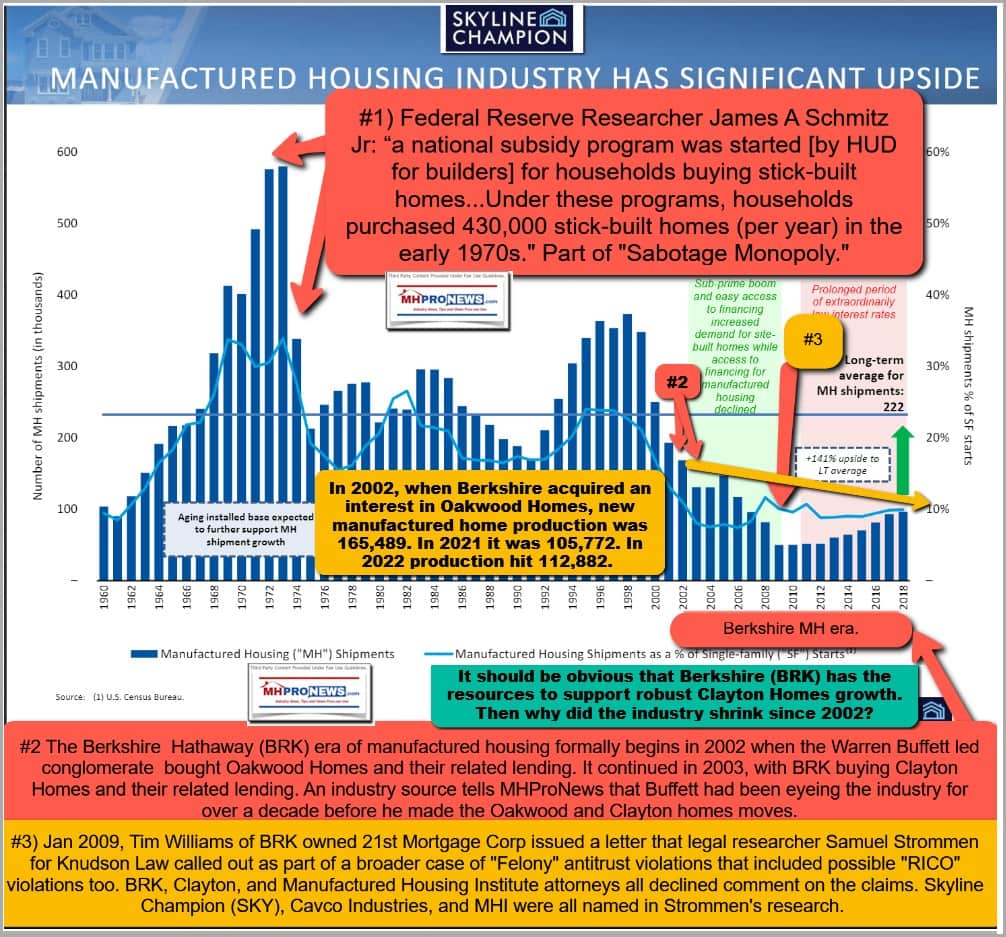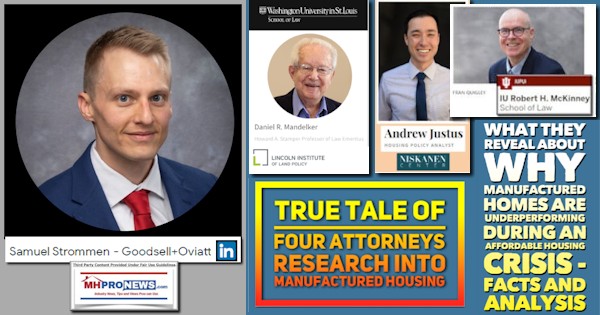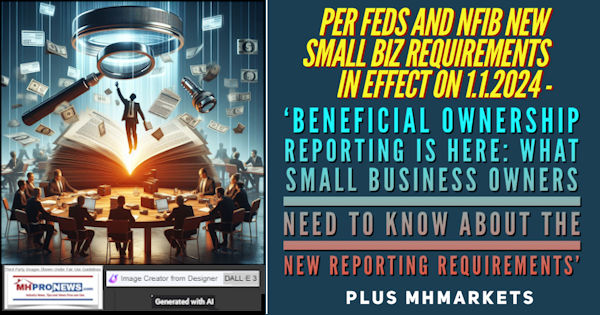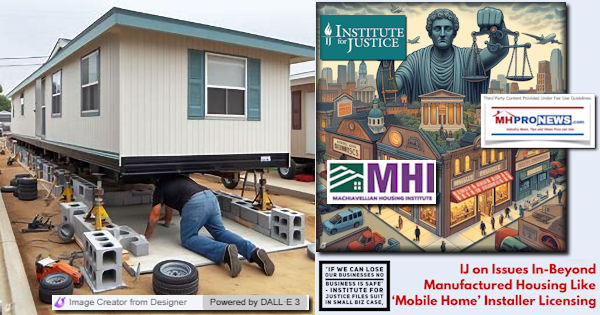
The Institute for Justice (IJ.org) has testified to Congress and taken on legal issues in court and advocacy (see below) in favor of the interests of mobile/manufactured homeowners, mobile/manufactured home installers, and more broadly the property, economic, and other rights of Americans in and beyond manufactured housing. To set the stage for the headline issues of threats to small businesses and employees being challenged by the Institute for Justice (IJ.org) including ‘mobile home’ installation and others in and beyond manufactured housing, it is useful to briefly consider the bigger picture. A few months ago, MHProNews spotlighted attorney Glenn Greenwald saying that it is no longer about left vs. right. Greenwald said it is about the Establishment vs. the Anti-Establishment. On January 1, 2024, MHProNews presented an exclusive annotated transcript of the award-winning full-length version of the ‘must see’ documentary, Shadows of Liberty. Among the reasons that matter is because the topics are critical for understanding our nation today. The full-length version (vs. the more commonly available shorter edited version) of that acclaimed Shadows of Liberty docudrama takes swats at Establishment operators on both the so-called left and right. Those interviewed on Shadows are perhaps exclusively left-leaning media, governmental, and educational personalities. So, Greenwald – from the left – and Shadows – from the left – have taken a well-documented shot at how the Establishment – Big Corporate, Big Media, Big Tech, ‘Donor Class,’ the financial and political elites that are the operating system reality of the U.S.A. today. Meanwhile, personalities on the right, such as deposed President Donald J. Trump, who on 1.15.2024 won a reportedly historically large margin of victory in the Iowa Caucuses, are also saying that the ‘system is rigged.’ That said, IJ said to Congress in Congressional testimony that included the interests of “mobile home park” residents that: “Congress should not be sending scarce economic development funds to projects that abuse eminent domain and strip hard-working, tax-paying home and small business owners of their constitutional rights, particularly when these projects may ultimately fail.”
Who do those projects often benefit? Big businesses and the well connected, said IJ.
Continuing from the same paragraph in their testimony to Congress about a particularly abusive example of eminent domain IJ’s attorney Dan Alban said: “Let New London be a lesson: After $80 million in taxpayer money spent, years tied up in litigation and ten years after the disastrous U.S. Supreme Court ruling, the Fort Trumbull neighborhood where Susette Kelo’s little pink house once stood is now a barren field that is home to nothing but feral cats. The developer balked and abandoned the project. Pfizer—the intended beneficiary of the project— closed its plant and left New London.” That Congressional hearing was entitled: “The State of Property Rights in America Ten Years After Kelo v. City of New London.” IJ in that hearing argued that the Supreme Court got the Kelo decision wrong in the: “United States House Committee on the Judiciary – Subcommittee on the Constitution & Civil Justice.”
Alban said that that case: “received significant national attention as a result of the United States Supreme Court’s universally reviled decision in Kelo v. City of New London.”
Against that backdrop, in today’s report with analysis the Institute for Justice (IJ) legal foundation has taken aim at a “dark scheme” by public official strip small business owners from their property and livelihoods. Regular readers here may recall that IJ took a case in a fight for tiny house interests. While this specific case isn’t manufactured home specific, it does have broad implication that could apply to a wide range of manufactured housing independents. Furthermore, as Part II will note, IJ has weighed in on manufactured home specific issues. For instance, manufactured home (as they called it “mobile home”) installer licensing. IJ appears to be taking on the types of cases and issues that one might think should inspire the Manufactured Housing Institute (MHI) to similarly use the legal system to fight for the rights of manufactured housing industry professionals, consumers, smaller businesses, etc.
Will an attorney(s) on behalf of the Manufactured Housing Institute (MHI) file an amicus brief in this IJ case on behalf of smaller businesses? Time will tell, but based on years of 21st century history, don’t hold your breath.
- Part I from the WND News Center to MHProNews is the following report on this “threat” against the interests of smaller businesses that say that “No one’s business is safe.”
- Part II – Additional Information with More MHProNews Analysis and Commentary, including more on employee rights, small business rights, and the work of the IJ on behalf of ordinary Americans.
Part I
‘No one’s business is safe’: U.S. city using dark scheme to steal property
‘Simply calling businesses blighted does not make them blighted’
By WND Staff
Published January 14, 2024 at 10:17am
Business owners in one Missouri location are fighting their local government to prevent the politicians and bureaucrats from taking their properties.
The Institute for Justice explains officials in Brentwood, a St. Louis suburb, decided they wanted a new row of new mixed-use development projects along a prominent street, Manchester Road.
Their problem? There already were business there, longstanding businesses whose owners built their American Dream in the neighborhood.
So the city decided to use eminent domain to get rid of them.
Officials decided everything along that street was “blighted” even though the businesses “are well-maintained and thriving and none of them have received warnings about the condition of their property.”
“Instead of supporting its local businesses, Brentwood is using a bogus blight designation to raise the tax rolls,” said IJ Attorney Bob Belden. “But no business should lose its location because a local government wants to replace it with another, more favored, business.”
The IJ pointed out, “Simply calling businesses blighted does not make them blighted,” and they’ve decided to sue Brentwood over its “bogus” designation.
Bringing the fight to the city are Feather-Craft Fly Fishing, a retail and online operation passed down from father to son; Time for Dinner, a meal prep business owned by two sisters; and Convergence Dance and Body Center, offering dance classes and chiropractic care and owned by a husband and wife.
“Each of us have invested years of hard work and significant amounts of money in our Brentwood businesses.” said Bob Story, owner of Feather-Craft. “We should not lose everything we built simply because the city thinks it can replace us with businesses it thinks will bring in more tax revenue. If we can lose our businesses, no one’s business is safe.”
Part of the problem is a Supreme Court ruling from 2005, Kelo v. New London, that claims taking property through eminent domain solely to help a different private business is not unconstitutional, yet Missouri’s law allows such confiscations only for public uses like roads.
“Since Missouri law does not allow cities to take property for private development, Brentwood also pinned the blight designations on the potential for a 500-year flood. But the city just completed a $120 million project to upgrade the streets and mitigate flooding in the Manchester Corridor,” the IJ explained.
“Missourians clearly do not want the government to be able to take property just for private economic development, but that’s exactly what Brentwood wants to do,” said IJ attorney Bobbi Taylor. ##
Part II – Additional Information with More MHProNews Analysis and Commentary
Per the Institute for Justice (IJ): “IJ is a public interest law firm. We represent clients free of charge in cutting-edge litigation defending vital constitutional rights.” Among their areas of focus are: “Private Property,” “Economic Liberty,” “First Amendment,” and “Educational Choice.” As was noted in the preface of this report and analysis IJ has weighed in on tiny house related issues. Among their areas of interest is the ‘right to work’ of lower- and middle-income Americans. So, while the specific case above is important, and more on that will be provided from IJ below, so too are the other areas that IJ is providing litigation and advocacy efforts.
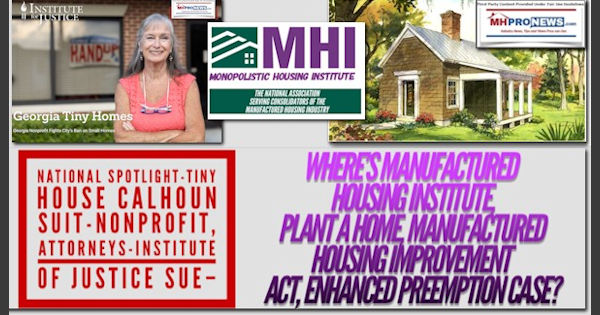
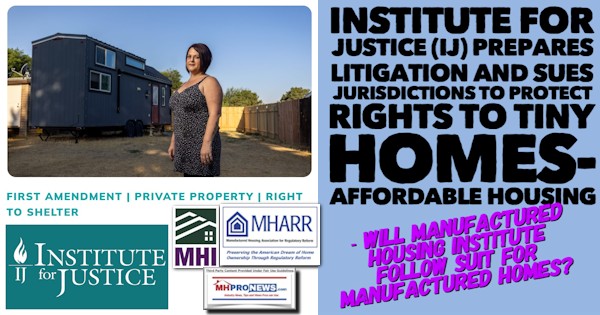
From the Institute for Justice’s executive summary on license-to-work issues is the following introduction. It will be followed by their specific insights on “mobile home installers.”
Executive Summary
Millions of Americans in low- and middle-income jobs like barber, landscape contractor, interior designer and many others need a government permission slip—known as an occupational license—to work. Securing one can take months or even years of training, one or more exams, hefty fees, and more. Proponents claim these licenses are necessary to protect consumers from unsafe or otherwise poor service. Yet most evidence indicates licenses do no such thing and instead impose heavy costs on workers, consumers, and the economy and society at large.
This third edition of License to Work provides an updated snapshot of licensing’s extent and burdens by cataloging state licensing requirements for 102 lower-income occupations across all 50 states and the District of Columbia. It also provides, for the first time, a report on licensing requirements in Puerto Rico. In another first, this edition analyzes changes in licensing requirements since 2017. Key findings include:
Licensing Remains Widespread and Burdensome
- In all, this edition catalogs 2,749 licenses across the 50 states and the District of Columbia and our sample of 102 lower-income occupations.
- On average, the requirements to secure these licenses remain steep: 362 days lost to education and experience, at least one exam, and $295 in fees.
- Interior designer remains the most difficult occupation to enter, though it is licensed by only two states and the District of Columbia.
- Among universally licensed occupations, barber and cosmetologist continue, despite reforms, to rank as some of the most difficult to enter.
- Louisiana still licenses the most occupations of any state, 77 of 102. Hawaii’s licenses still rank as the nation’s most burdensome, while Nevada is the most widely and onerously licensed state.
Modest Reforms Have Removed and Reduced Some Licensing Barriers
- Between 2017 and 2022, states created 16 new licenses across the 102 occupations but eliminated 26. While small, this net reduction of 10 licenses represents a reversal of the prior five-year trend.
- Nearly 20% of licenses became less burdensome, including sizable reductions to mandatory education and experience—the most burdensome type of licensing requirement. As a result, average days lost to education and experience requirements fell by 22 days across our sample.
- These burden reductions clustered in the contractor trades, particularly in Utah and Arkansas, as well as barbering and beauty occupations.
Questionable Licenses and Licensing Burdens Abound
- Just 12% of the 102 occupations are licensed universally, which means workers are likely practicing the other 88% safely in at least one state—and often many more than one—without a license.
- Despite having been delicensed by at least one state, 14 occupations continue to be licensed somewhere in the United States—by between three and 47 states.
- Licensing burdens do not always appear aligned with occupational risks: Workers in 71 occupations, including all the barbering and beauty occupations we study, face greater average burdens than entry-level emergency medical technicians.
- At least 13 occupations in our sample remain licensed in at least one state even though a majority of government studies have declined to endorse their licensure.
In short, there remains much room—and need—for licensing reform nationwide. Accordingly, this edition proposes five reform strategies for policymakers interested in slashing licensing red tape: (1) repealing and reducing licensing barriers, (2) preventing new licenses, (3) paring back broad “scopes of practice,” (4) removing barriers to mobility, and (5) easing licensure—and reentry—for people with criminal records.
Occupational licensing burdens remain widespread and burdensome, albeit a little less so than a few years ago. Five years after the second edition of License to Work, and 10 years after the first, this third edition makes the case, and provides a blueprint, for continuing the reform trajectory.”
The third edition of IJ’s License to Work introduction and access to their download are found here and the PDF download is found here.
As was noted above, IJ has weighed in on barriers for what they call “mobile home installers,” more properly now manufactured home installers, in a detailed look at the challenges linked on their website here. In fairness to IJ, some states may use the term “mobile home installers,” even though the proper terminology in perhaps 90 percent of moves, installation, and uninstalls are going to be HUD Code manufactured homes. The issue is important, as the death of an installer and a serious injury that made national news underscored.
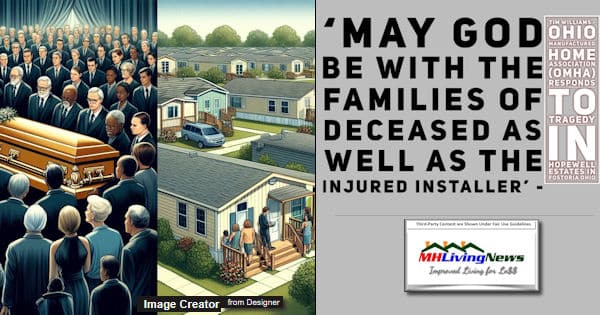
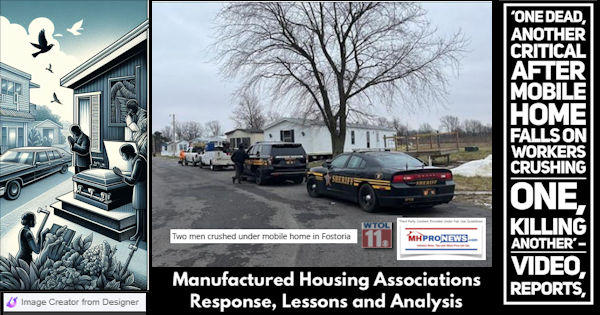
Note that IJ, in their research and reporting on the issue of mobile/manufactured home installer licensing, says that the burden has increased in several states. Why hasn’t the Manufactured Housing Institute (MHI) made this one of several possible post-production sector issues that is blunting the manufactured home industry to the detriment of smaller businesses, employees, and consumers who need lower cost homes during an affordable housing crisis?
MHProNews put that question to Bing AI powered search tool, dubbed Bing Copilot.
> “The Institute for Justice has done research on the burdens imposed on mobile and manufactured home installers in a report linked here: https://ij.org/report/license-to-work-3/ltw-occupation-profile/mobile-home-installer/ Can you find any evidence online that the Manufactured Housing Institute has made this an issue in their supposed advocacy for the post-production sector of the manufactured home industry?”
After saying MHI’s claim that they are the only national trade association advocating on behalf of all aspects of the manufactured home industry, Copilot said this.

Per IJ, under the subheadings shown on this page on their website linked here said the following.
How does my state compare to others?
Definition
Mobile home installers move or install manufactured (mobile) homes. Federal law requires states to have minimum training and licensing standards for this occupation. In states without their own licenses, installers need a federal license, which this report does not observe. See Appendix B for details.
2022 Snapshot
- 14 unlicensed states
- Days lost range from 0 (4 states) to 1,460 (California)
- Fees range from $8 (Kentucky) to $2,790 (Arkansas)
- 33 states require 1+ exam
- 18 states set minimum age
- 1 state sets minimum grade
Changes Since 2017
- 2 licenses removed by Michigan and Pennsylvania; none created
- Fees changed most often and changes were almost evenly split between increases and decreases; New Mexico, Colorado and Idaho raised education and experience, while Utah and Delaware reduced them
- Burden rank worsened 5 spots despite smaller net education and experience reductions, largely because other occupations improved more and fees increased on net; combined rank improved 1 spot, largely because of 2 eliminated licenses
2022 Licensing Burden in Detail
Data Notes: 2022 data collected between February 3, 2020, and March 18, 2022. Fees include charges for application review and license issuance; exams; background checks, credit reports and fingerprinting; recovery fund contributions; third-party certification; and certain fees for training courses. Calendar days lost were estimated based on required education and experience; except for amounts smaller than one day, days lost are rounded to whole days and thus may not reflect very small changes between 2017 and 2022. Appendix A details methods for estimating days lost and calculating burden ranks. Complete data, including revised 2017 data, are available at https://ij.org/report/license-to-work-3/ltw3-data/.
More from the donor supported nonprofit IJ at this page linked here.
IJ’s arguments before Congress on eminent domain is linked here. The context for the “mobile home park” portion of the testimony by IJ, quoted below, is found on page 6.

So, IJ spotlighted an issue on how affordable manufactured housing has been harmed, not helped, by the (mis)use of taxpayer dollars. Those dollars benefited a few at significant harm and costs to the many. That noted, MHProNews asked this from Bing Copilot.
> “The Institute for Justice mobile home park mentioned in testimony to congress in remarks to congress linked here: https://docs.house.gov/meetings/JU/JU10/20150709/103691/HHRG-114-JU10-Wstate-AlbanD-20150709.pdf can you find any related comments by the Manufactured Housing Institute on those issues?”
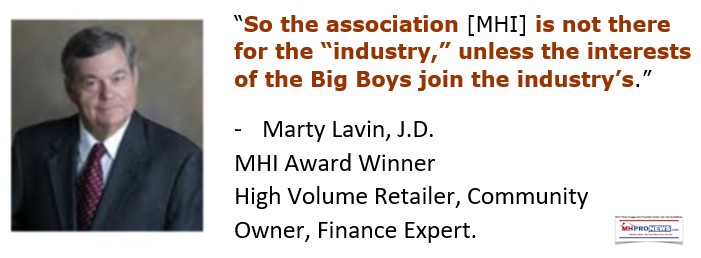
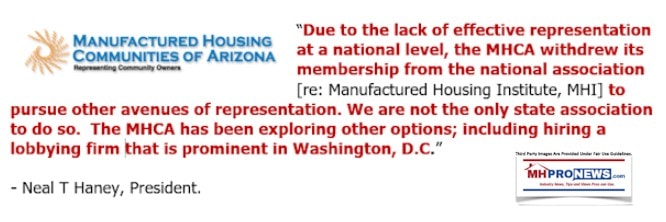
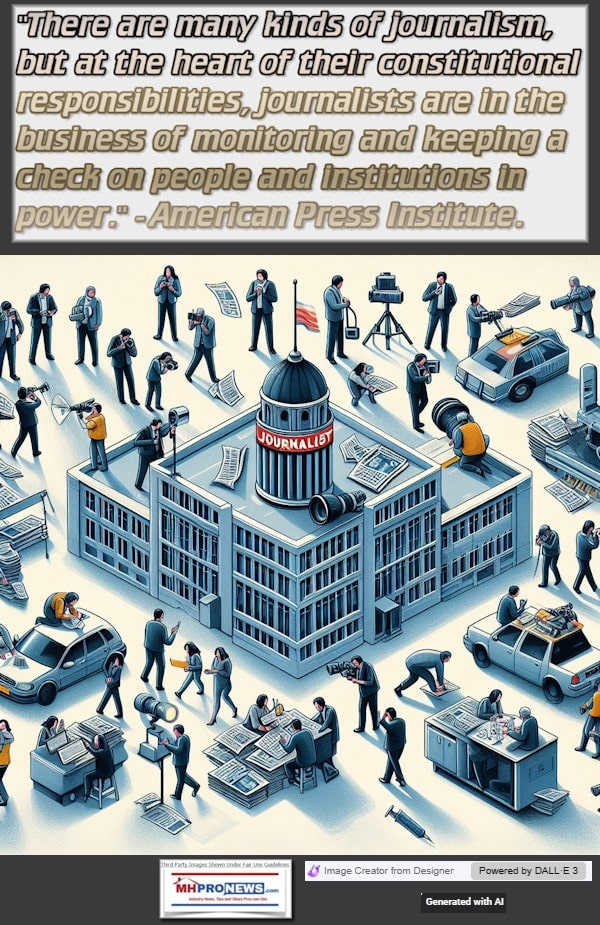


Again, our thanks to free email subscribers and all readers like you, as well as our tipsters/sources, sponsors and God for making and keeping us the runaway number one source for authentic “News through the lens of manufactured homes and factory-built housing” © where “We Provide, You Decide.” © ## (Affordable housing, manufactured homes, reports, fact-checks, analysis, and commentary. Third-party images or content are provided under fair use guidelines for media.) See Related Reports, further below. Text/image boxes often are hot-linked to other reports that can be access by clicking on them.)

By L.A. “Tony” Kovach – for MHProNews.com.
Tony earned a journalism scholarship and earned numerous awards in history and in manufactured housing.
For example, he earned the prestigious Lottinville Award in history from the University of Oklahoma, where he studied history and business management. He’s a managing member and co-founder of LifeStyle Factory Homes, LLC, the parent company to MHProNews, and MHLivingNews.com.
This article reflects the LLC’s and/or the writer’s position and may or may not reflect the views of sponsors or supporters.
Connect on LinkedIn: http://www.linkedin.com/in/latonykovach
Related References:
The text/image boxes below are linked to other reports, which can be accessed by clicking on them.’
